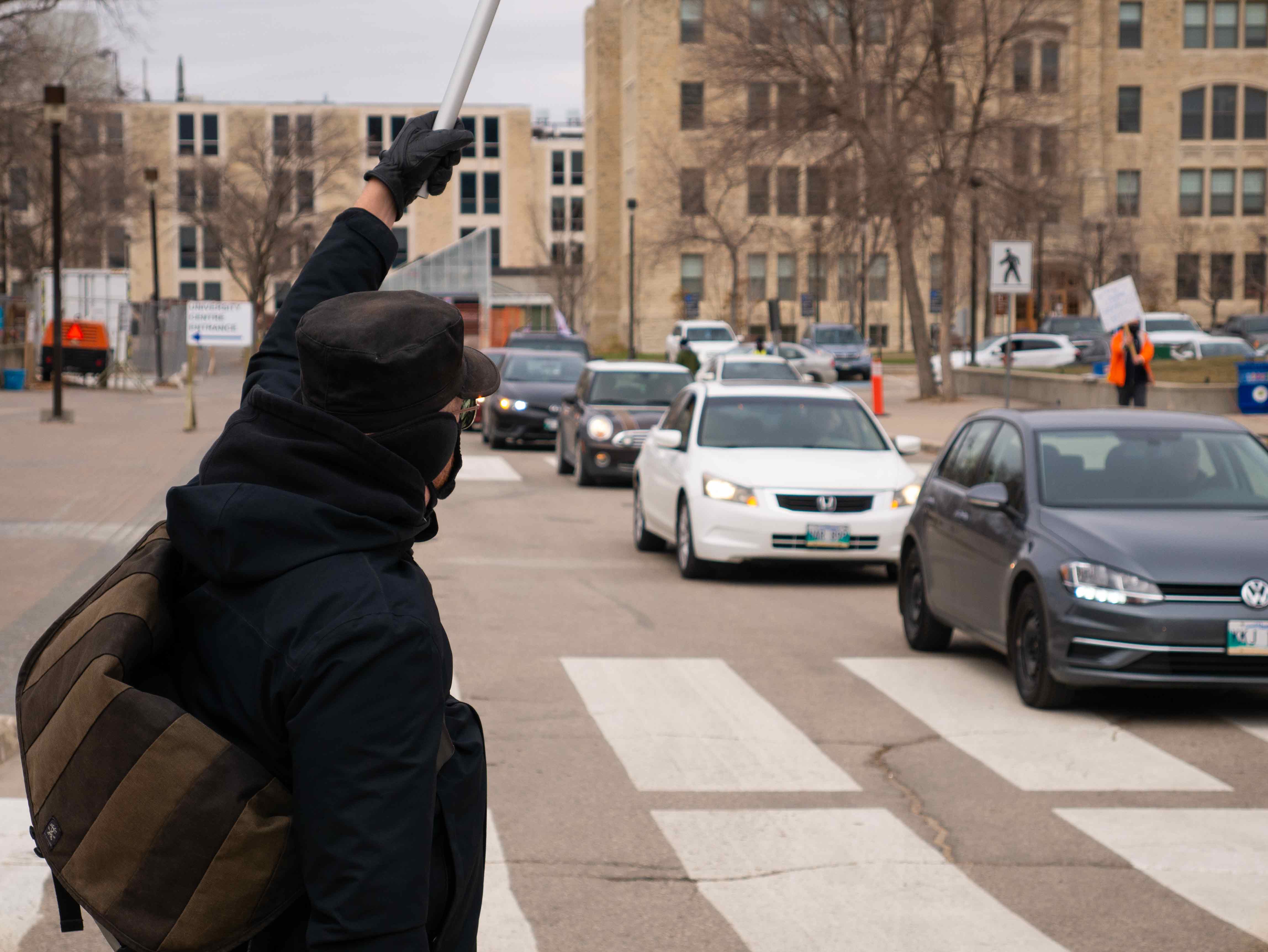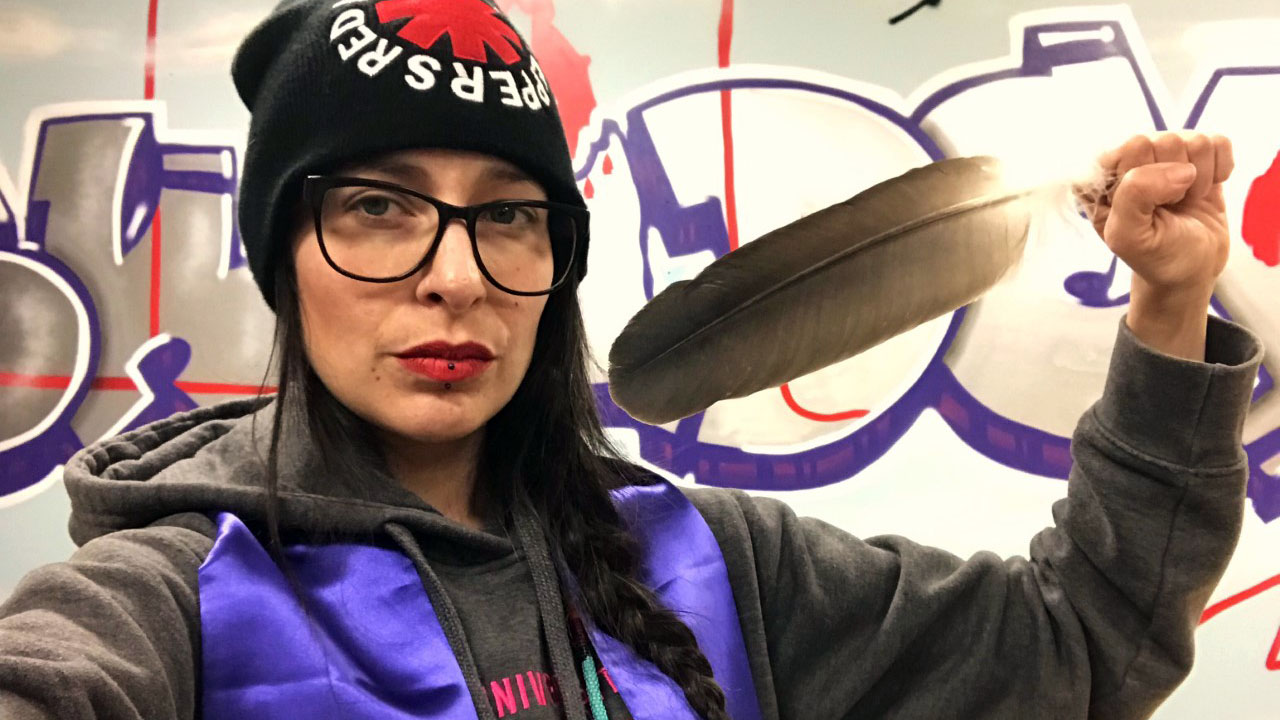More than two dozen members of the University of Manitoba Faculty Association (UMFA) lined up outside the U of M senate chambers today to protest what the association president called a “closed, secretive” process to find the next president of the university.
University president David Barnard will be leaving the position in June 2020 and the selection process to find his replacement will begin later this week.
A search committee — which includes UMSU president Jakob Sanderson, UMGSA president Carl Neumann and an UMFA member — has been formed to decide on a candidate. The committee will present a recommendation to the board of governors, which will make the final decision.
According to a statement released by UMFA, the senate overwhelmingly supported a motion to make the presidential selection process accessible to the entire university community at a meeting in January but the board of governors rejected the proposal.
UMFA president Janet Morrill said the goal of the protest is to increase transparency from the board of governors.
“We want to have community input into the search process, we want to know who the list of candidates are and we want those candidates to make public presentations,” she said.
“Right now, with it being a closed search, not only does the U [of] M community not have any input, but the people who are on the committee can’t do their own inquiries of information either. Because by doing that, they would be revealing who the candidates were. So it’s very much a compromised process, the way they want to do it.”
As senate members, including Barnard, walked into the campus senate chambers for today’s meeting, protestors chanted “open search.”
At the senate meeting, a letter by chair of the board of governors Jeff Lieberman was read out explaining the board’s reasoning for the closed-door selection process.
“Given the history of confidential searches in the sector, potential candidates for Canadian university presidencies would expect a confidential process and would be particularly hesitant to come forward as candidates when compared to other countries,” the letter read.
“For these reasons, the pool of candidates for an open process would suffer considerably.”
Morrill said this reasoning is unfounded.
“They say that they are doing that to protect the candidates, and they say that by protecting the candidates, they get better candidates,” she said.
“There’s no empirical support for that. And what they’re doing is putting protection of the candidates over and above making a good choice of the leader of the university.”
All presidential searches at the University of Manitoba have occurred using a closed process.
In the meeting, senate member Mark Gabbert, a professor in the faculty of arts, suggested the senate move to alter the selection process so, rather than a fully public or fully closed process, it was instead available to “a closed session of senate.”
“At least the senators would be, in some sense, representing the mass of the university community, although in obviously a limited way,” he said.
“But at least it would be a compromise between the concerns of, which are no doubt legitimate […] the concerns of the headhunters who are advising and managing the search as far as they are.
“And really, the very compelling reasons that the university community has to know more about who the candidates are going to be and this particular procedure really permits us to do it.”
After some discussion concerning whether or not a motion could be introduced from the floor, it was decided that because the issue arose from discussions held in the previous senate meeting it could be approved and sent to a vote.
The motion suggested the shortlisted candidates be made available to the senate in a closed session, that each make a short presentation explaining their goals for the and that senators be permitted to make submitted assessments of the candidates to the search committee.
The motion passed, though not unanimously.
UMSU president Jakob Sanderson voted in favour of the motion.
“While I understand the advantages of a confidential search, I think it’s important that students and faculty can have their say in this critical process,” Sanderson said.
“And this is a strong middle ground proposal.”
Gabbert called the motion a “significant compromise.”
“I think it’s unfortunate that the board never actually consulted us in advance of deciding what the search procedures would be,” he said.
“Because if it at least had some input there, the outcome might have been the same, but I think there should have been some deference to senate’s advice in this matter. And that didn’t happen.”





